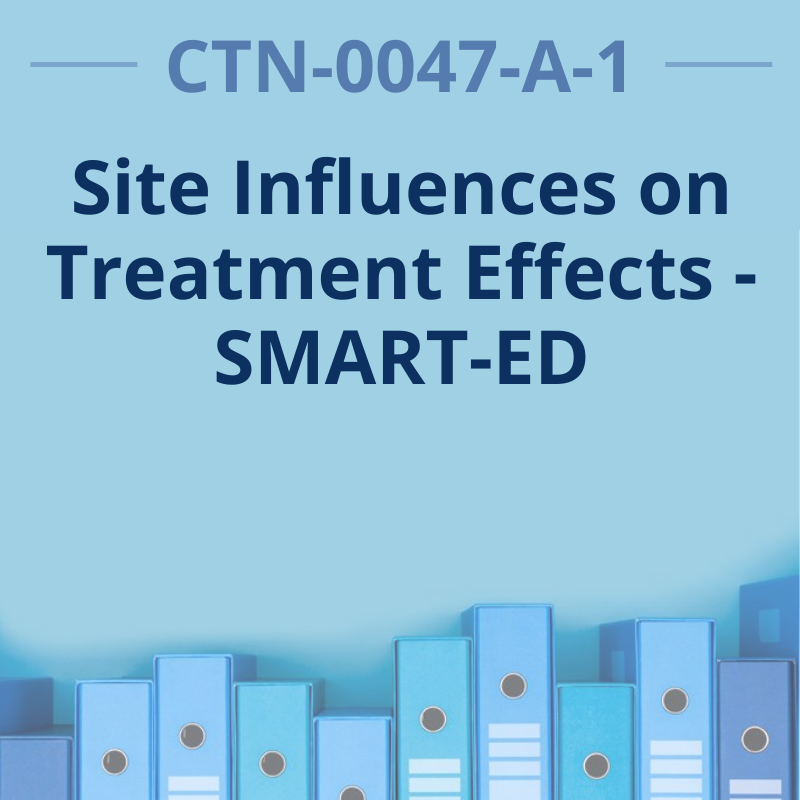CTN-0047-A-1: Site Influences on Treatment Effects – Screening, Motivational Assessment, Referral, and Treatment in Emergency Departments (SMART-ED)

Dennis McCarty, PhD
Lead Investigator
Professor, Department of Public Health and Preventive Medicine
Oregon Health & Science University
mccartyd@ohsu.edu
Site variations in study outcomes are apparent in clinical trials conducted within the National Drug Abuse Treatment Clinical Trials Network (CTN). Systematic and standardized collection of organizational and workforce variables may help elucidate site variations and increase the CTN’s understanding of patient outcomes in protocols. The SMART-ED trial (CTN-0047) will be used to assess the influence of organizational and workforce characteristics on trial operations (e.g., rates of participant recruitment and follow-up) and patient outcomes (e.g., reductions in drug use). This study will build on the analysis of organizational and workforce data in the Baseline Protocol (CTN-0008) and the collection of pre-implementation site data for STAGE-12 (CTN-0031-A-3). The study’s specific aim is the assessment of associations between site organizational and practitioner variables and site differences in clinical trial outcomes.
Primary Findings
The SITE analysis for the SMART-ED protocol (CTN-0047) assessed variation in workforce characteristics and variation in attitudes and beliefs related to screening and brief interventions for drug use disorders in emergency departments. During visits to 6 study sites, 41 respondents (5-8 per study site) completed the SITE assessment tool. The workforce varies across study sites. Goal commitment was strong at all study sites.
Related Studies
Related Resources
Node Involvement
Lead Node(s):
All Participating Nodes: